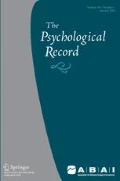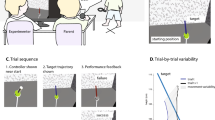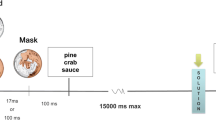Abstract
The effects of contractual (contingent on task completion), endogenous (related to the activity), unexpected, or no rewards on interest and quality of performance were studied in 94 preschool children identified as initially high or low interest in connect-the-dot puzzles. The data were analyzed in terms of immediate and subsequent effects of rewards on the number of minutes spent on the task (interest), and quality of coloring. During the experiment, less time was spent on the task when rewards were offered in advance, particularly in the endogenous reward group, which also produced poorest quality colorings. For the posttest, both initially uninterested groups receiving unexpected rewards spent more time on the puzzles, but contractual rewards interacted with initial interest. High interest children decreased and low interest children increased time doing puzzles. Endogenous reward groups did not differ from controls. Subsequent quality of coloring was lower only in the initially low interest, endogenous reward group.
Similar content being viewed by others
References
BEM, D. J. (1967). Self perception: An alternative interpretation of cognitive dissonance phenomena. Psychological Review, 74, 183–200.
CALDER, J. B., & STAW, B. M. (1975). The interaction of intrinsic and extrinsic motivation: Some methodological notes. Journal of Personality and Social Psychology, 31, 76–80.
DECI, E. L. (1971). Effects of extrinsically mediated rewards on intrinsic motivation. Journal of Personality and Social Psychology, 18, 105–115.
DECI, E. L. (1972). The effects of contingent and noncontingent rewards and controls on intrinsic motivation. Organizational Behavior and Human Performance, 8, 217–229.
DECI, E. L. (1975). Intrinsic motivation. New York: Plenum.
DECI, E. L., & PORAC, J. (1978). Cognitive evaluation theory and the study of human motivation. In M. Lepper (Eds), The hidden costs of rewards: New perspectives on the psychology of human motivation. Hillsdale, NJ: Lawrence Erlbaum.
EISENSTEIN, N. (1977). Making rewards work: Refining the overjustification hypotheses. Unpublished master’s thesis, Loyola University of Chicago.
EISENSTEIN, N. (1981). Effect of rewards on quality and interest in high and low interest preschoolers. Unpublished doctoral dissertation, Loyola University of Chicago.
FOLGER, R., ROSENFELD, D., & HAYS, R. P. (1978). Equity and intrinsic motivation role of choice. Journal of Personality and Social Psychology, 36(5), 557–564.
HARACKIEWICZ, J. M. (1979). The effects of reward contingency and performance feedback on intrinsic motivation. Journal of Personality and Social Psychology, 37(8), 1352–1363.
KELLEY, H. (1973). The processes of causal attribution. American Psychologist, 28(2), 107–128.
KRUGLANSKI, A. W. (1975). Endogenous and exogenous partition in attribution theory. Psychological Review, 82, 387–406.
KRUGLANSKI, A. W., RITER, A., AMITAL, A., MARGOLIN, B., SHABTAI, L., & AHOK, D. (1977). Can money enhance intrinsic motivation: A test of the content consequence hypothesis. Journal of Personality and Social Psychology, 31, 744–750.
KRUGLANSKI, A. W., STEIN, C., & RITER, A. (1977). Contingencies of exogenous reward and task performance in the “minimax” strategy in instrumental behavior. Journal of Applied Psychology, 7(2), 141–148.
LEPPER, M. R,, & GREENE, D. (1973). On understanding overjustification: A reply to Reiss and Shusinsky. Journal of Personality and Social Psychology, 33(1).
LEPPER, M. R., & GREENE, D. (1975). Turning play into work: Effects of adult surveillance and extrinsic rewards on children’s intrinsic motivation. Journal of Personality and Social Psychology, 31, 479–486.
LEPPER, M. R., GREENE, D., & NESBITT, R. E. (1973). Undermining children’s intrinsic interest with extrinsic rewards: A test of the overjustification hypothesis. Journal of Personality and Social Psychology, 28, 129–137.
LEPPER, M. R., SAGOTSKY, G., DAFOE, J. L., & GREENE, D. (1982). Consequences of superfluous social constraints: Effects on young children’s social inferences and subsequent intrinsic interest. Journal of Personality and Social Psychology, 42(1), 51–65.
LOVELAND, K. K., & OLLEY, J. G. (1979). The effect of external reward on interest and quality of task performance in children of high and low intrinsic motivation. Child Development, 50(4), 1207–1210.
McGRAW, K. O. (1978). The detrimental effect of reward on performance: A literature review and a prediction model. In M. R. Lepper & D. Greene (Eds.), The hidden costs of rewards: New perspectives on the psychology of human motivation. Hillsdale, NJ: Lawrence Erlbaum.
MCLOYD, V. C. (1979). The effects of extrinsic rewards of differential value on high and low intrinsic interest. Child Development, 50(4), 1010–1019.
MORGAN, M. (1981). The overjustification effect: A developmental test of self perception. Journal of Personality and Social Psychology, 40(5), 809–821.
RANSEN, D. L. (1980). The mediator of reward-induced motivation decrements in early and middle childhood: A template matching approach. Journal of Personality and Social Psychology, 39(6), 1088–1100.
REISS, S., & SUSHINSKY, L. W. (1975). Overjustification, competing responses, and acquisition of intrinsic interest. Journal of Personality and Social Psychology, 31(6), 1118–1125.
ROSENFELD, D., FOLGER, R., & ADELMAN, H. F. (1980). When rewards reflect competence: A qualification of the overjustification effect. Journal of Personality and Social Psychology, 39(3), 368–376.
SWANN, W. B., & PITTMAN, T. (1977). Initiating play activity of children: The moderating influence of verbal cues on intrinsic motivation. Child Development, 48(3), 1128–1132.
Author information
Authors and Affiliations
Rights and permissions
About this article
Cite this article
Eisenstein, N. Effects of Contractual, Endogenous, or Unexpected Rewards on High and Low Interest Preschoolers. Psychol Rec 35, 29–39 (1985). https://doi.org/10.1007/BF03394906
Published:
Issue Date:
DOI: https://doi.org/10.1007/BF03394906




